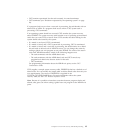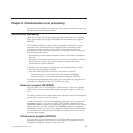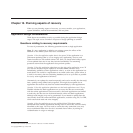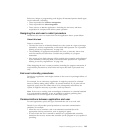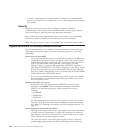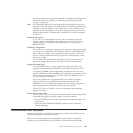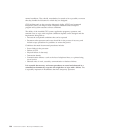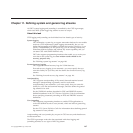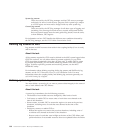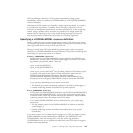Before any design or programming work begins, all interested parties should agree
on the statement—including:
v Those responsible for business management
v Those responsible for data management
v Those who are to use the application—including the end users, and those
responsible for computer and online system operation
Designing the end user ’s restart procedure
Decide how the user is to restart work on the application after a system failure.
About this task
Points to consider are:
v The need for users to re-identify themselves to the system in a sign-on message
(dictated by security requirements, as discussed under question 4 in “Questions
relating to recovery requirements” on page 101).
v The availability of appropriate information for users, so that they know what
work has and has not been done. Consider the possibility of a progress
transaction.
v How much or how little rekeying will be needed when resuming work (dictated
by the feasibility of rekeying data, as discussed under question 9 in “Questions
relating to recovery requirements” on page 101).
When designing the user’s restart procedure (including the progress transaction, if
used) include precautions to ensure that each input data item is processed once
only.
End user’s standby procedures
Decide how application work might continue in the event of a prolonged failure of
the system.
For example, for an order-entry application, it might be practical (for a limited
time) to continue taking orders offline—by manual methods. If you plan such an
approach, specify how the offline data is to be subsequently entered into the
system; it might be necessary to provide a catch-up function.
Note: If the user is working with an intelligent workstation or a terminal attached
to a programmable controller, it may be possible to continue gathering data
without access to a CICS region on an MVS host system.
Communications between application and user
For each application, specify the type of terminal the user is to work with.
Decide if you will provide special procedures to overcome communication
problems; for example:
v Allow the user to continue work on an alternative terminal (but with
appropriate security precautions, such as signing on again).
v In cases where the user’s terminal is attached to a programmable controller,
determine the recovery actions that controller (or the program in it) is capable of
providing.
Chapter 10. Planning aspects of recovery 103



